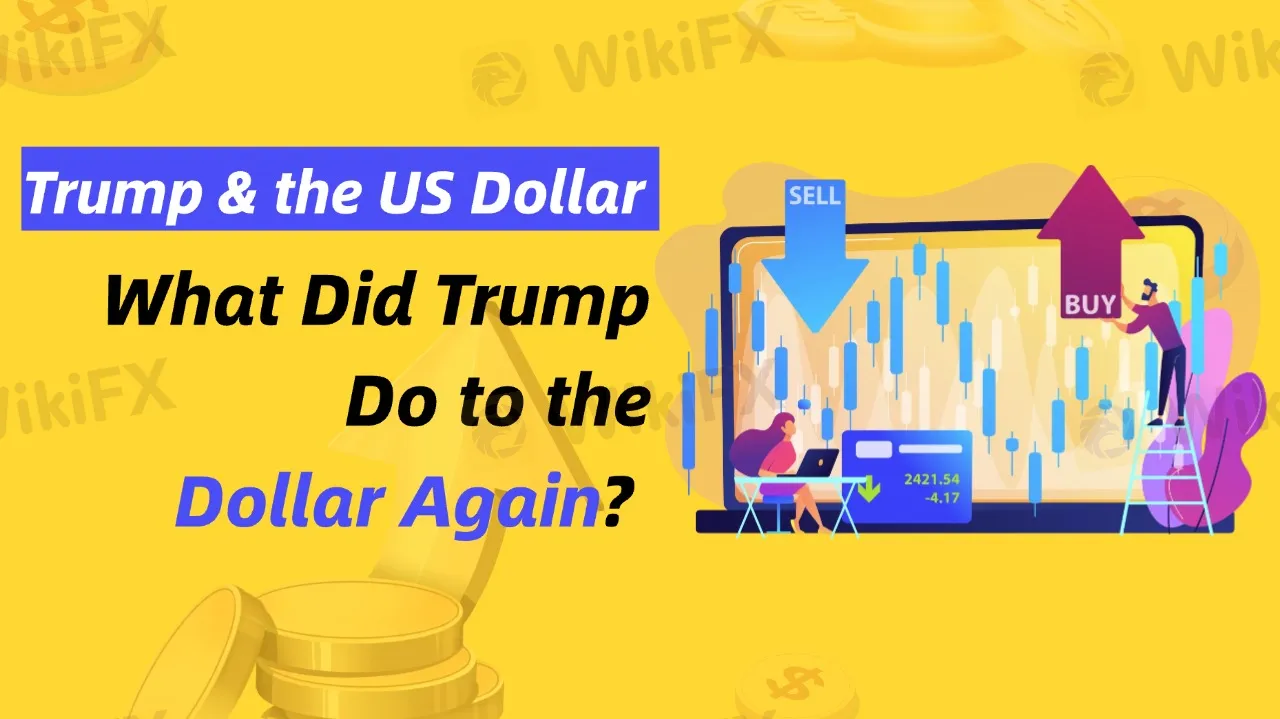简体中文
繁體中文
English
Pусский
日本語
ภาษาไทย
Tiếng Việt
Bahasa Indonesia
Español
हिन्दी
Filippiiniläinen
Français
Deutsch
Português
Türkçe
한국어
العربية
What Did Trump Do to the Dollar Again?
Abstract:What decision did Trump make regarding tariffs? Why did it cause Asian stock markets to fall while strengthening the US dollar?

On February 9th, US President Trump announced a 25% tariff on all imported steel and aluminum, which caused Asian stock markets to decline while the US dollar strengthened.
This new tariff policy is expected to escalate tensions in the trade war, push inflation higher, and impact the Federal Reserve's monetary policy. Trump's decision may lead to further strengthening of the dollar.
After the announcement, Asian stock markets opened lower, with the MSCI Asia-Pacific Index down 0.3%, the major index in South Korea falling 0.6%, and the Nikkei Index also seeing a slight decline. However, the US dollar performed strongly, with the dollar index reaching 108.26, hitting a new high.
The EUR/USD exchange rate fell 0.1%, while the USD/JPY rate rose to 151.82 yen. This reflects market expectations that tariffs could push US inflation higher, prompting investors to flock to the dollar as a safe-haven asset.
Trump's tariff policy limits the Fed's ability to cut interest rates. The tariffs may push inflation up, and high inflation would limit the Fed's ability to reduce rates. Based on recent employment reports, market expectations for rate cuts this year have been reduced from 42 basis points to 36 basis points.
Fed Chairman Powell will address this issue during congressional hearings and will release January's consumer price data. Investors are concerned that tariffs will exacerbate inflation, particularly with some companies expecting price hikes.
In response to the uncertainty brought by Trump's tariff hikes and fluctuations in the US dollar, investors should proceed with caution. When the dollar performs strongly, it may be wise to moderately increase allocations to dollar-related assets.
Given the rise in inflation expectations, investors should pay attention to changes in the bond market and adjust their portfolios accordingly. With the global economy facing uncertainty, diversifying investments is crucial to reducing potential risks.
Disclaimer:
The views in this article only represent the author's personal views, and do not constitute investment advice on this platform. This platform does not guarantee the accuracy, completeness and timeliness of the information in the article, and will not be liable for any loss caused by the use of or reliance on the information in the article.
Read more

Never Heard of Dynasty Trade? Here's Why You Should Be Worried
Have you heard this name before? No , it’s time you do because staying unaware could cost you. This platform is currently active in the forex trading and has been linked to several suspicious activities. Even if you’ve never dealt with it directly, there’s a chance it could reach out to you through ads, calls, messages, or social media. That’s why it’s important to know the red flags in advance.

WEEKLY SCAM BROKERS LIST IS OUT! Check it now
If you missed this week's fraud brokers list and are finding it difficult to track them one by one — don’t worry! We’ve brought together all the scam brokers you need to avoid, all in one place. Check this list now to stay alert and protect yourself from fraudulent brokers.

Catch the Latest Update on BotBro & Lavish Chaudhary
BotBro, an AI-based trading platform, became popular in India in 2024—but for negative reasons. Its founder, Lavish Chaudhary, who gained a huge following by promoting it heavily on social media. Since then, he has become well-known, but for many controversies. Let’s know the latest update about Botbro & Lavish Chaudhary.

Trading Other People’s Money | What Prop Firms Don’t Tell You
Proprietary (prop) trading firms have become increasingly popular. They give traders the chance to trade with larger amounts of money without risking their own savings. For many, this sounds like the perfect opportunity to grow faster and earn more. But while the benefits are appealing, there are also risks and hidden rules that traders must understand before joining a prop firm.
WikiFX Broker
Latest News
Is Your Forex Strategy Failing? Here’s When to Change
FSMA Warns That Some Firms Operate as Pyramid Schemes
Apex Trader Funding is an Unregulated Firm | You Must Know the Risks
Sigma-One Capital Scam? Investors Say They Can’t Withdraw Funds
Federal Reserve likely to hold interest rates steady despite pressure from Trump. Here's what that means for your money
WEEKLY SCAM BROKERS LIST IS OUT! Check it now
Intel drops 9% as chipmaker's foundry business axes projects, struggles to find customers
Palantir joins list of 20 most valuable U.S. companies, with stock more than doubling in 2025
Textiles to whisky: U.K.–India 'historic' deal is set to boost bilateral trade by over $34 billion a year
Thailand-Cambodia border clashes: Cambodia's economy has more to lose, analysts say
Currency Calculator


